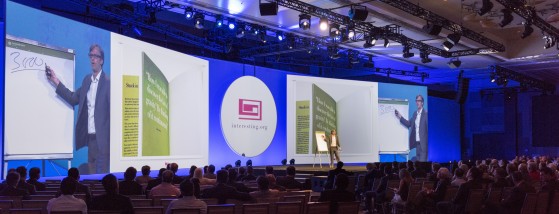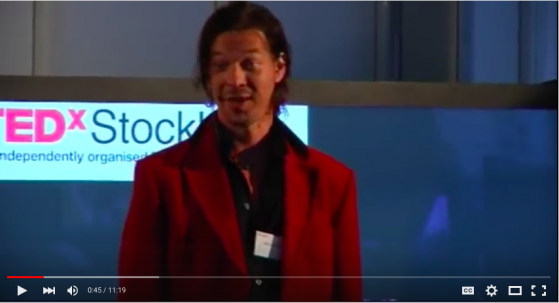Singapore.

One of the most common questions I get when people hear that I have been a professional speaker for 20+ years is:
“Don’t you get nervous?!”
When they hear me reply: “I try to…“, they usually look so confused that I have to explain what I mean.
Since this is a blog on speaking, I am assuming that the question of nervousness is high up on the list of topics that the readers of this blog want me to cover.
So let me explain.
You see, I believe that a great speaker should be a little bit nervous.
To be nervous means to have a “feeling or reaction resulting from anxiety or anticipation.”
True, the nervousness that comes from anxiety is perhaps not the best of feelings.
But the nervousness that anticipation creates is great. It creates energy, tension, a touch of danger or vulnerability. A feeling that something is at stake.
Very experienced speakers risk loosing this tension and go up on stage and just go through the motions, fall back on auto-pilot and get the speech over and done with.
God, how boring to listen to!
Give me a nervous speaker over that any day.
A tightrope walker who is not feeling any nervousness at all when stepping up on the rope is probably walking 2 feet over the ground. That is not a very thrilling tightrope walk to watch.
And the same is true for a speech: a speaker who feels nothing when he or she goes up on stage will probably not be very interesting to listen to. Or at least, it would be more interesting to listen to if the audience felt a bit of tension in the air.
As a speaker who has done around 2000 speeches over the last 20+ years, I understand that I am at risk of falling into the trap of delivering bland speeches without a slight degree of nervousness, just because of the fact that I have done it so many times.
It’s just like the risk of missing a dangerous spot if you drive on a road you have driven 100s of times before, because you relax too much thinking that you know what is going to happen as you drive through that familiar road.
Since just walking up on a stage doesn’t make me nervous anymore, I artificially try to make myself more nervous.
Here are some helpful techniques that I use to increase nervousness:
1. I (almost every time I speak) move, or remove, one or two slides just minutes before I go on stage to make myself a bit uncertain in which order the slides are going to come.
2. I have been known to walk around backstage to create the feeling of nervousness in myself.
3. I can envision that I am totally going to bomb as a speaker while I am waiting to go up the stage, and then I think of some of the best speeches that I have ever done to counter balance the negative thoughts that come into my head. 😉
I am not saying that you should copy my techniques, especially not if you are a new speaker who feels nervous just thinking about having to deliver your speech.
The funny thing is that suddenly, once in a while – even after 20 years of doing this – I too feel nervous before going up on stage without having to do anything to create that feeling.
Regardless of what we do to try to make ourselves a little bit anxious about how the delivery of our message will be received, just know that feeling anxious or nervous is a good one. Embrace that feeling.
I once listened to a speech writer for Bill Clinton who revealed that one US President (I do not remember who it was anymore) reportedly drank too much water before delivering an important speech to make himself conscious about peeing himself (!) to create that feeling of tension in the air that comes from the right kind of nervousness.
Lesson: Do not worry if you feel a little bit nervous when you are about to go up and give an important speech. Start to worry when you never feel nervous before a speech.
P.S.
Even if you are overwhelmed by a lot of nervousness, know that an audience will almost always try to mentally help you overcome it. Just look at this video where Swedish poet Bob Hansson steps up on stage and admits that he is nervous.
(Quote: “I am always nervous, but now I have to be nervous in English” — Fantastic!)
And notice how the audience reacts and embraces him, and the speech turns out great!

(Suggestion: Submit your email address in the form to the right to get a convenient email summary in your inbox every time 10 new posts have been posted.)

